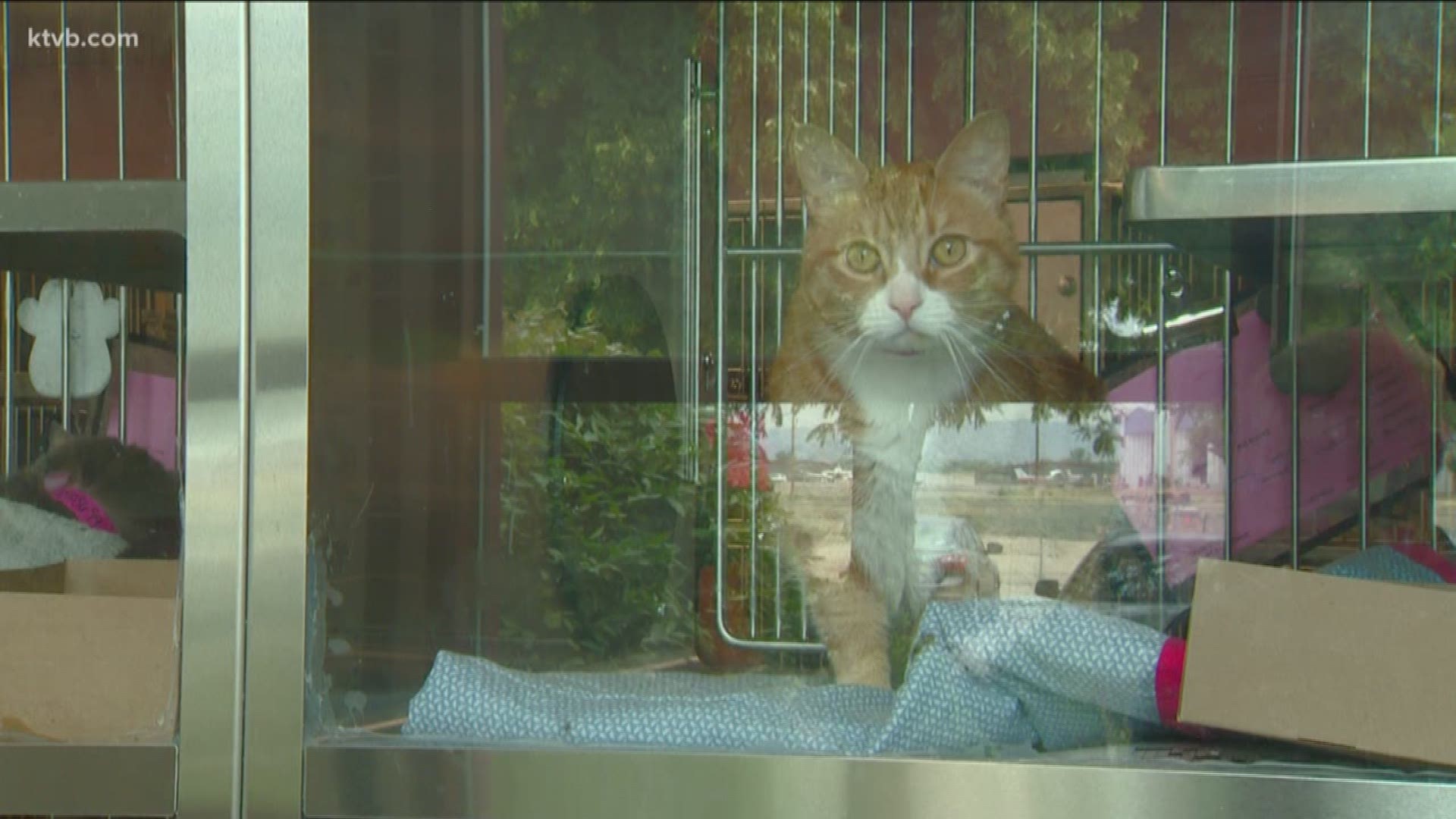OWYHEE COUNTY, Idaho — Idaho health officials are warning the public after a cat in Owyhee County tested positive for rabies.
The cat was tested at the Idaho Bureau of Laboratories last week after it was behaving aggressively and bit its owner.
The Centers for Disease Control and Prevention confirmed the cat was infected with a strain of rabies virus normally associated with bats.
Officials say this is the first rabid cat detected in Idaho since 1992, and the first rabid animal from Owyhee County so far in 2019.
When asked where specifically in Owyhee County the cat was found, the Idaho Department of Health and Welfare said they are not releasing that information because it could affect the privacy of the cat's owner.
Dr. Leslie Tengelsen, state public health veterinarian with Health and Welfare, said while bats are the main source of rabies in Idaho, any mammal - wild or domestic - can contract the virus. That can include cats, dogs, horses, ferrets, raccoons, skunks, and more.
“It’s important to note that there’s no part of the state that we consider rabies free," she said. "So we may have found this kitty in Owyhee County but we do find rabid animals in counties across the state every year so it’s important that people take precautions for themselves and their pets.”
According to Tengelsen, rabies is 100% fatal in both animals and humans once the virus fully spreads. So it's important that anyone who may have been exposed should seek medical attention right away to get a vaccine to try and stop rabies from developing into a full-blown infection.
It's also important to make sure your animals are vaccinated.
“Your pet in theory can bring rabies to you," Tengelsen said. "So if your pet is vaccinated then you’re also protecting your family against a potential exposure to rabies.”
Southwest District Health staff are working to make sure exposed people are receiving the proper medical attention, including vaccinations. They are also working with the cat's owners and the Idaho State Department of Agriculture to be sure other potentially exposed animals on the property are managed appropriately.
So far this year, 10 rabid bats and one rabid cat have been reported from across the state. In 2018, a total of 12 rabid bats were found in Idaho.
The fall months can bring an increase in bat interactions with people and pets because many bats begin migrating to warmer climates.
As for less common animals contracting the virus, statistics from the Idaho Department of Idaho Health and Welfare show a skunk tested positive for rabies in Idaho in 2014, as well as a bobcat in 2001 and a horse in 1999.
People bitten by any mammal, including cats and bats, should wash any wound thoroughly with soap and water and call their healthcare provider promptly to confirm if they have been exposed to rabies.
Parents are encouraged to talk to their children about the importance of not touching bats or other wild or unfamiliar domestic animals, because doing so can have serious medical consequences. Animal owners should contact their veterinarian immediately if they suspect their pet has been exposed to a rabid animal. They will need a booster even if the pet's vaccinations are up-to-date.
To protect yourself and your pets, Idaho Health and Welfare offers the following tips:
- Keep your pets' rabies vaccinations up-to-date. Pets may encounter bats outdoors and in the home. Rabies vaccination is also a routine recommendation to protect horses.
- Talk to your veterinarian if your pet suddenly begins acting strangely; rabies is just one of many possible reasons for a behavior change.
- Do not touch a bat with your bare hands.
- Avoid bats to the best of your ability. If you have had an encounter with a bat (bite or scratch), seek medical attention immediately.
- If you believe you were bitten or scratched by a bat, save the bat in a container without touching it and contact your public health district to ask about testing the bat for rabies.
- Bat-proof your home or cabin appropriately.

